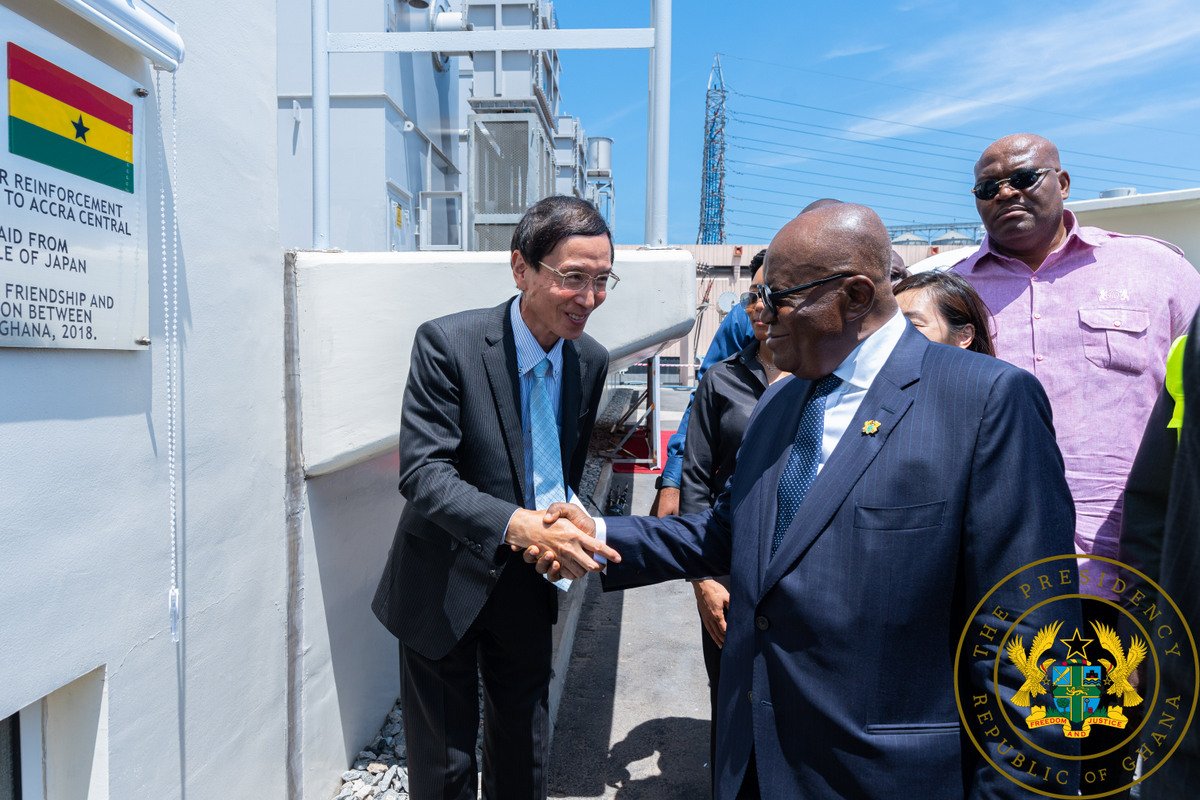
 President Nana Addo Dankwa Akufo-Addo says Ghana will not return to the period of frequent power outages that existed under former President John Dramani Mahama.
President Nana Addo Dankwa Akufo-Addo says Ghana will not return to the period of frequent power outages that existed under former President John Dramani Mahama.
He pointed out that having access to dependable power is essential for a nation to industrialise and raise the standard of living for its people.
To this end, his government will remain steadfast in ensuring a consistent power supply, despite the fluctuations in global energy prices, as the alternative is not acceptable.
“I wish to reassure you all that my government will continue to work towards keeping the lights on, in spite of the global dynamics of energy pricing, because the alternative is not an option. We are not going back to dumsor, we leave that to President Mahama,” he said.
“Our daily lives, from simple things such as charging our mobile phones, and keeping our electrical appliances working, to operating our offices and businesses, are run by electric power. Electricity is no longer a luxury but rather a necessity in this day and age, and we must commit ourselves to working hard to ensure that we achieve universal coverage in this country in order to spur on rapid rates of economic growth,” he said.
President Akufo-Addo said this at the commissioning of the $40 million 161-kilovolt GRIDCo, ECG Bulk Power Supply Point yesterday at Adabraka in Accra. The project was constructed under the Project for the Reinforcement of Power Supply to Accra Central.
Power needs
The President noted that the power needs of Accra’s Central Business District have important implications for the economy, with the projected electricity demand rate of residents and commercial establishments, operating within Accra Central and its environs, standing at 10% per annum.
In addition, power demand in Greater Accra is projected to reach about 1,000 megavolt-ampere (MVA), with an average annual growth rate of some 8%.
“It is evident that the execution of the Accra Central BSP project is consistent with the country’s power needs and development, with a GDP growth rate of up to 15% around the time of project preparation,” he said.
Appreciation
President Akufo-Addo expressed gratitude to the Japanese government and the Japanese Consultants for their efforts and continuous support and contribution to Ghana’s development and growth.
“This project is an excellent illustration of the strong cooperation that links Ghana and Japan, which we cherish very much. My gratitude also goes to the Electricity Company of Ghana (ECG) for providing access to part of the compound of its Primary Substation E, which facilitated the construction of this Accra Central BSP,” he said.
“I also wish to thank all traditional leaders, as well as the Ghana Railway Development Authority, for access to the transmission line right-of-way,” he added.
President Akufo-Addo further expressed gratitude to the leadership of the Presbyterian Church of Ghana and families in this area, “who ceded part of their lands to pave the way for the building of the transmission tower that provides a critical connection point from the BSP for onward connection to the power supply.”
Accra Central BSP
The Accra Central Bulk Power Supply Project was funded by the Japanese government and its external agency, the Japanese International Development Agency (JICA).
It was a Joint Venture of Yachiyo Engineering Co., Ltd. and West Japan Engineering Consultants Inc; the main Contractor, a Japanese Joint Venture of Mitsubishi Corporation, Hitachi Plant Construction, Ltd., and Yurtec Corporation,
This Bulk Supply Point is a gas-insulated sub-station, which is GRIDCo’s first sub-station with such technology. It is an innovation in technology applied in areas where spaces are significantly limited, thus large capacity switchgear and transformers, which are compact, can be installed.
The project, amongst many other things, will reduce transmission and distribution losses, ensure high reliability of electricity supply, and ensure a high level of personnel safety.
With the operationalisation of the Accra Central BSP, power voltages have become stable (protecting valuable equipment), power supply reliability has improved, and, with this, efficiency has been restored, reducing system losses as required by the regulator, Public Utilities Regulatory Commission (PURC).





